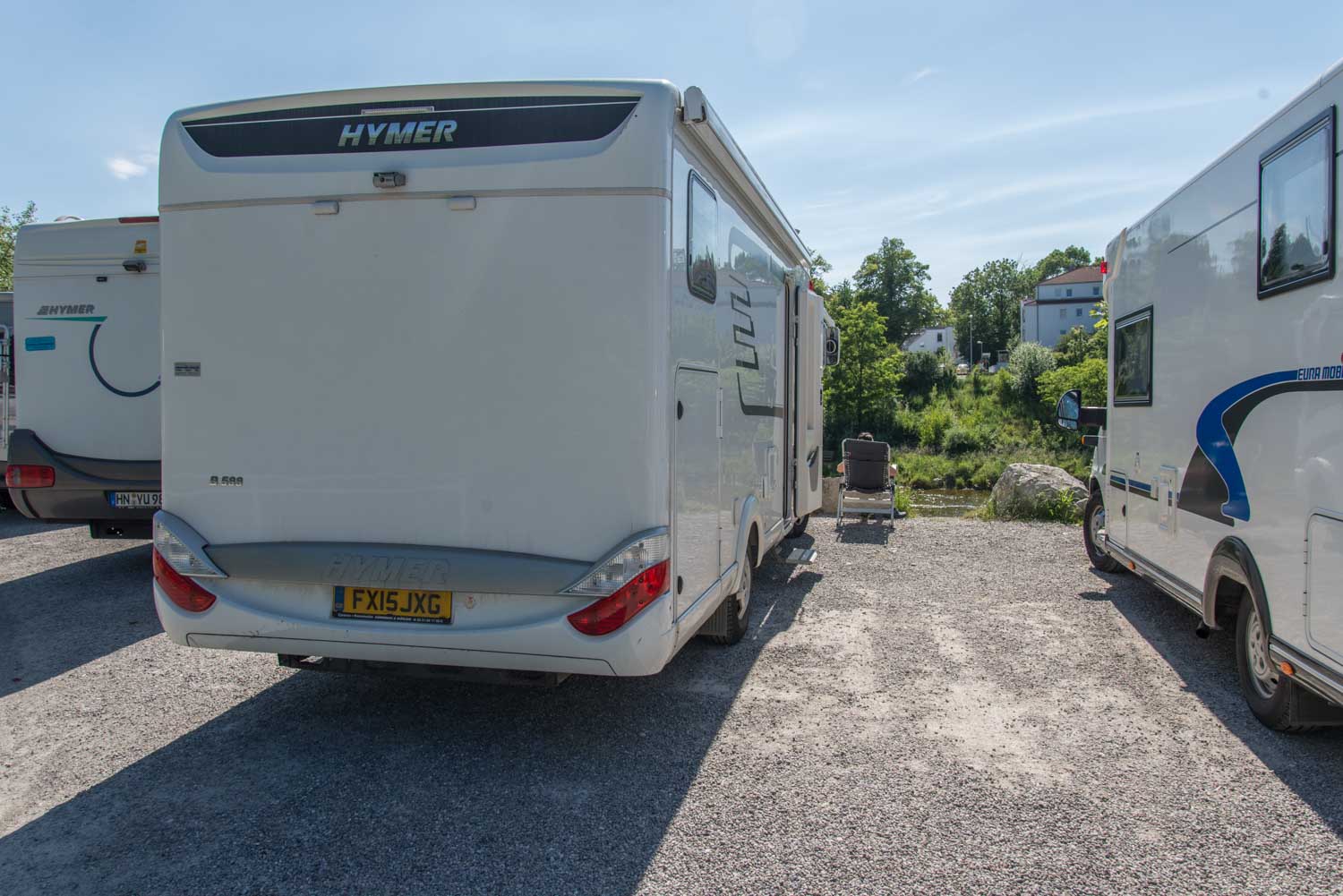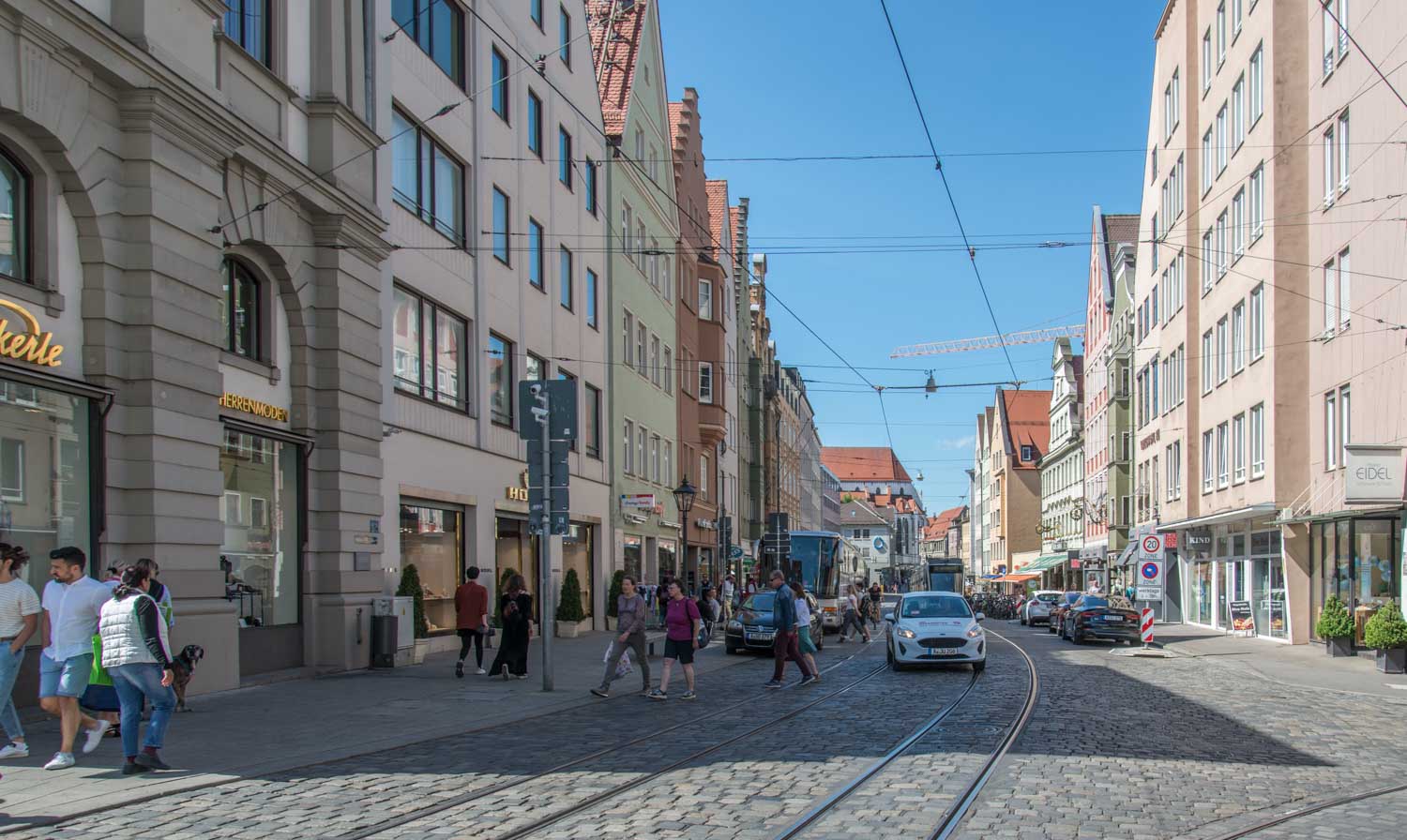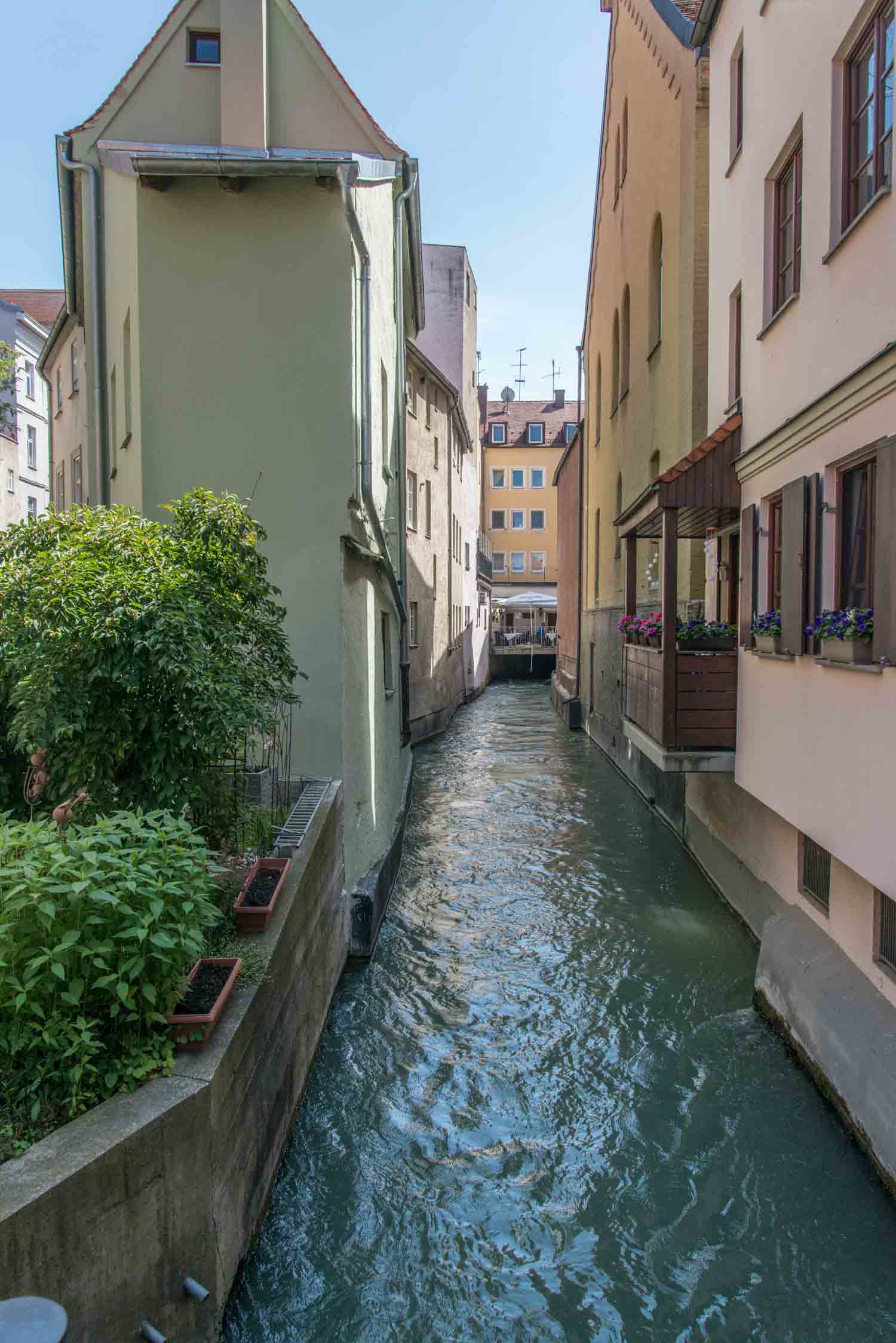Mittenwald turned out to be every bit as pretty as my guide book had led me to believe. Set in the midst of the Bavarian Alps; a ski centre in the winter; it’s like the picture from a chocolate box lid.
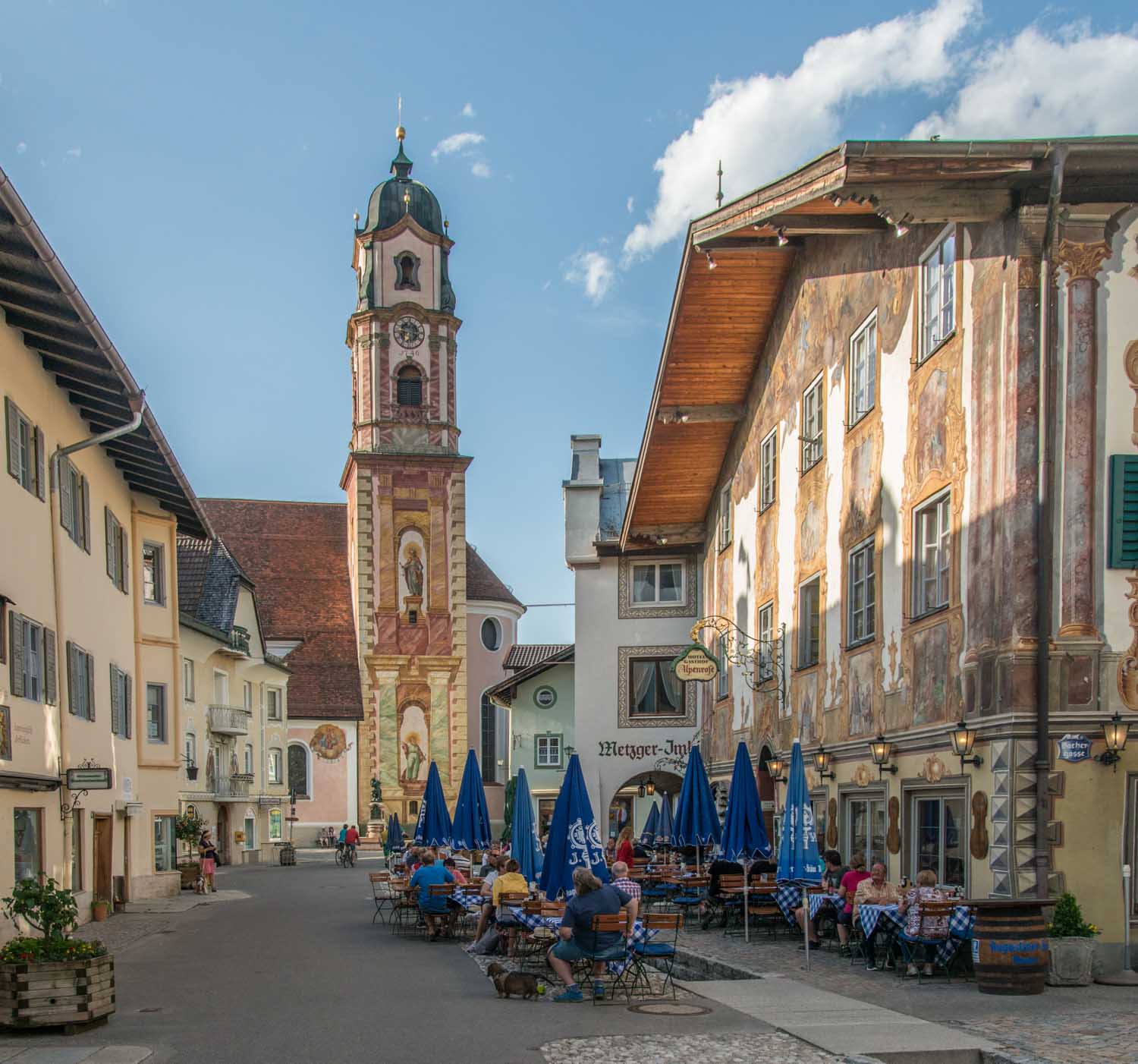
With the sun shining, the population were sprawled in various outdoor cafes and beer gardens amongst the pastel shaded and frescoed, alpine style buildings. The exterior of the Catholic Church was almost one big fresco.
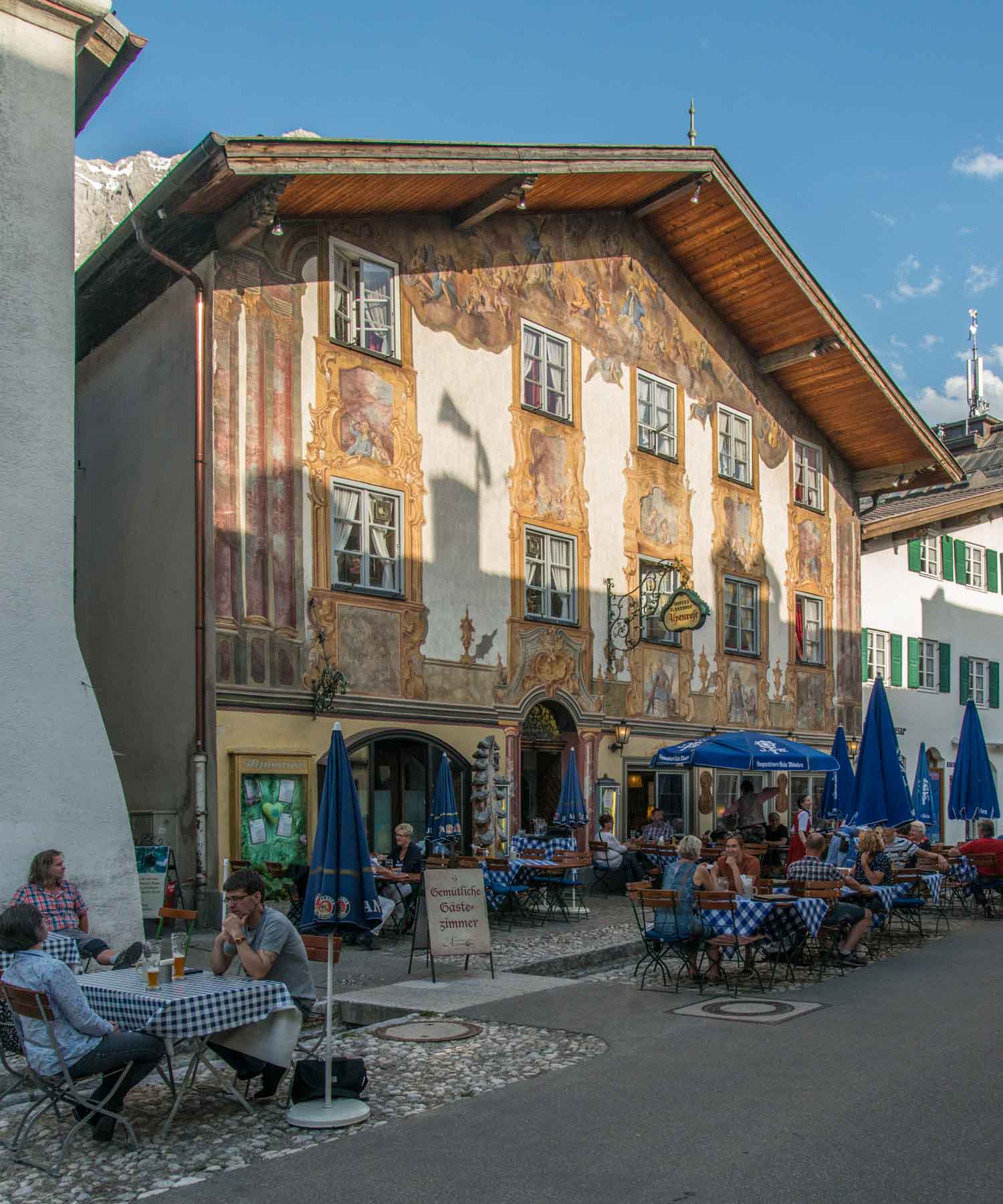
Sarah, the dogs and I found ourselves a lovely beer garden with a beautiful view of the mountains. The property was owned by Mittenwald’s brewery and the beer was excellent, as it always is in Germany. I decided to try a Bavarian speciality which appeared to be the top half of a pig’s leg, accompanied by a ball of something with suet, a sticky ball of potato and the obligatory cabbage salad.
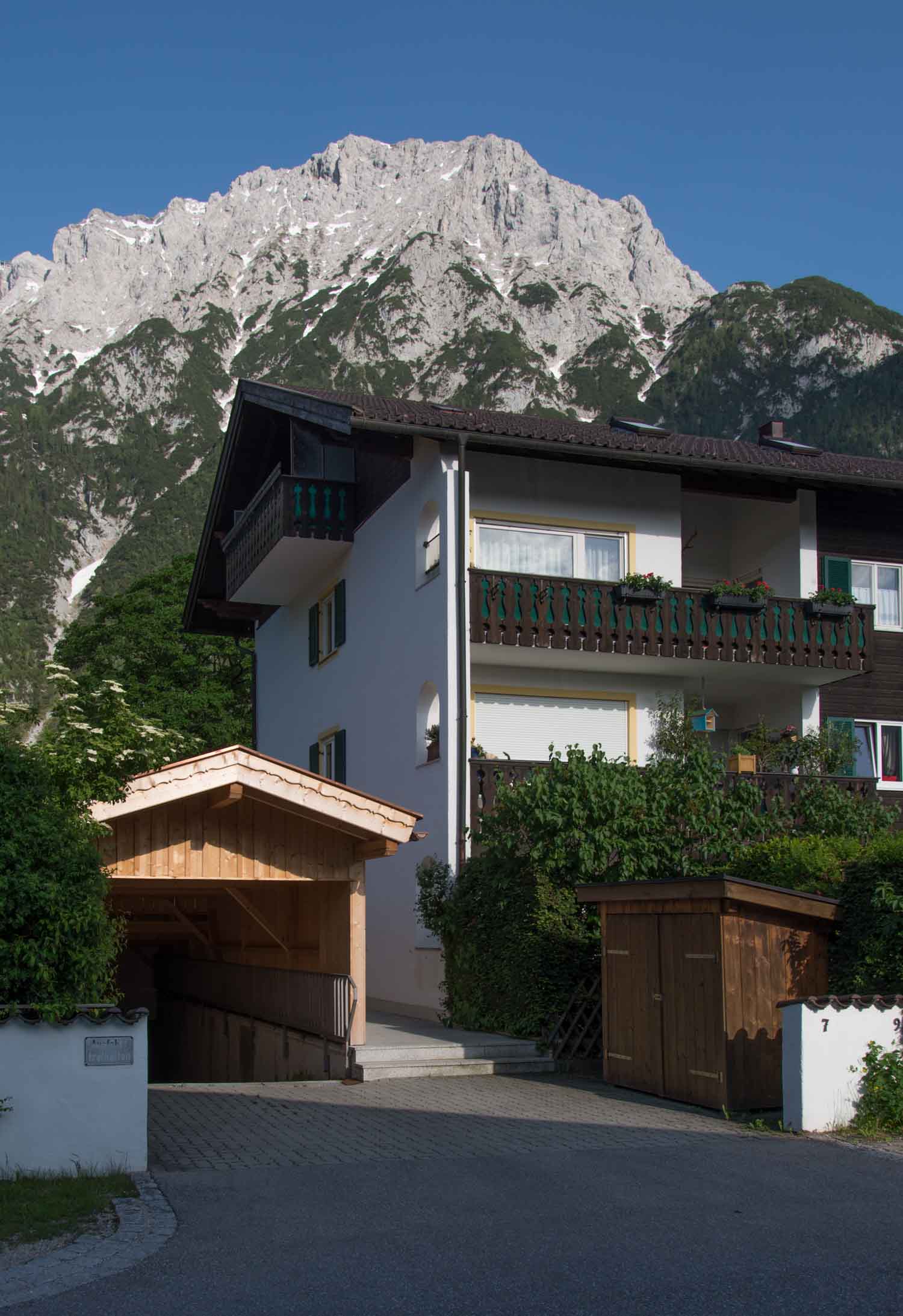
I think it was the best piece of pork I have eaten in 45 years. The fat on the outside had been cooked to a perfect crisp crackling and the inside was so tender it just fell off the bone. By the time I had finished I felt I didn’t want to eat for a month. Bavarian food is famously heavy and should be eaten sparingly if you want to continue to fit into your lederhosen!
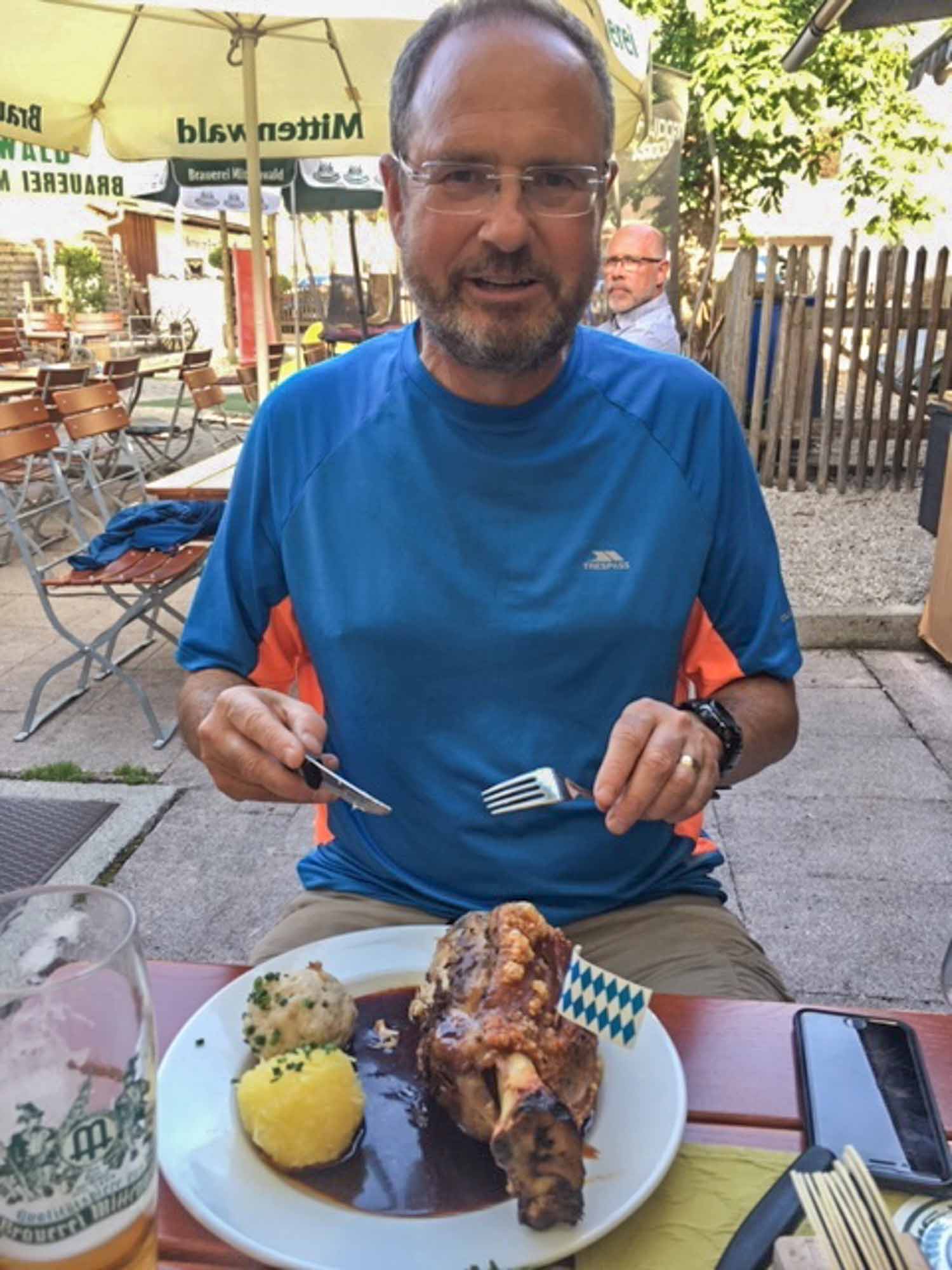
Today we moved two hours north west to the city of Augsburg. I’m currently reading Mary Beard’s History of Rome, and she is constantly reminding her readers of the unexpected influence the Romans still exercise over our lives. Augsburg’s name is a good example, because it is the corruption of the Roman name for the city – Augusta Vindelicorum – which itself was named after the first Roman Emperor, Augustus.
I had spotted that the Tourist Information Office ran a two hour tour at 2pm every day in English. Unfortunately our rather nice Stellplatz (48.369602, 10.877959 normally €8 but the machine’s broken so for us its free) was two kilometres from the centre of the city. With Sarah’s back much improved, but not perfect, I set out on my own.
The guided tour was not one of the best I’ve been on. Firstly the poor guide had to repeat everything in English and German, because some Germans had been transferred onto the English tour from the overbooked German one. Secondly, although I am a glutton for facts, she provided so many that even I began to lose concentration.
We looked at the Rathaus (Town Hall) which they claim is the finest early Renaissance building in Northern Europe. It was however flattened during the Second World War, as a result of Augsburg being home to a Messerscmitt factory and other heavy industry and so what you now see is an almost total reconstruction, and even that I though was a little plain, but what do I know. As an aside, I wonder why Britain never rebuilt any of its old damaged buildings, when the Germans have completely and accurately reconstructed hundreds?

The group spent an inordinately long time inside the Rathaus examining the splendidly reconstructed Gold Room in minute detail.

Tour took in the birthplace of Berthold Brecht and most interestingly the world’s oldest social housing complex still in use, the Fuggerei. It was built originally in 1516 by Jacob Fugger and about 600 people live in this village within the city for a rent of less than one Euro a year! The only stipulations are that the persons are citizens of Augsburg, in need, Catholic and willing to say three prayers a day for the Fugger family.
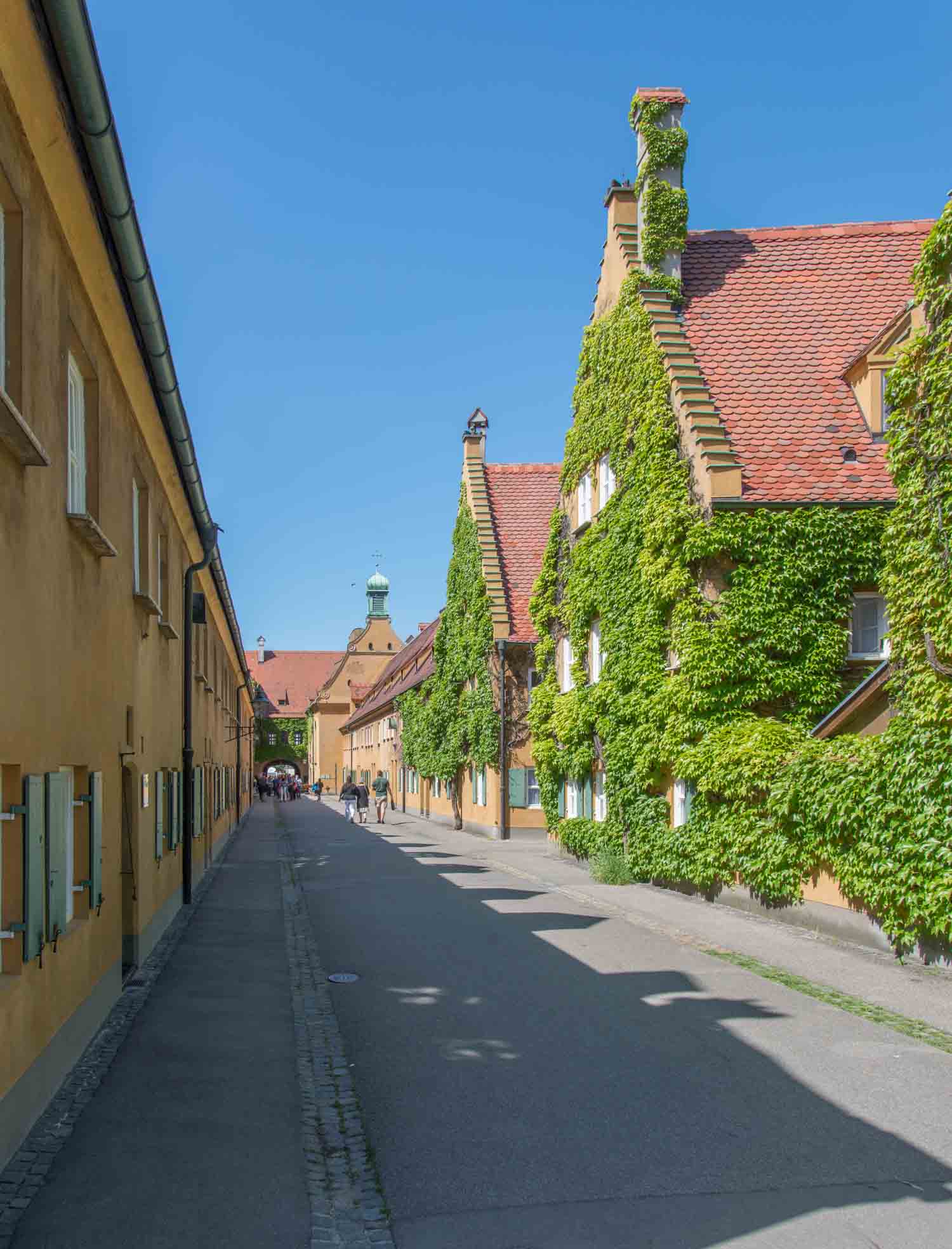
You see Mr. Fugger was one of the main collectors of the money from the Pope’s indulgences, sold to reduce the purchaser’s time in purgatory and, purely coincidentally filling Mr. Fugger’s and the Pope’s coffers. It was also a key cause of the Reformation. At that time it was Roman Catholic doctrine that time in purgatory could be reduced by prayers by the living for the dead. So by building the Fuggerei Mr Fugger was ensuring that his time in purgatory would be reduced considerably. You would have thought they could stop praying now. After 500 years, with so many prayers, Mr. Fugger will either be in Heaven or, more likely, he went to the other place straight away for taking so much money from poor, gullible, souls!
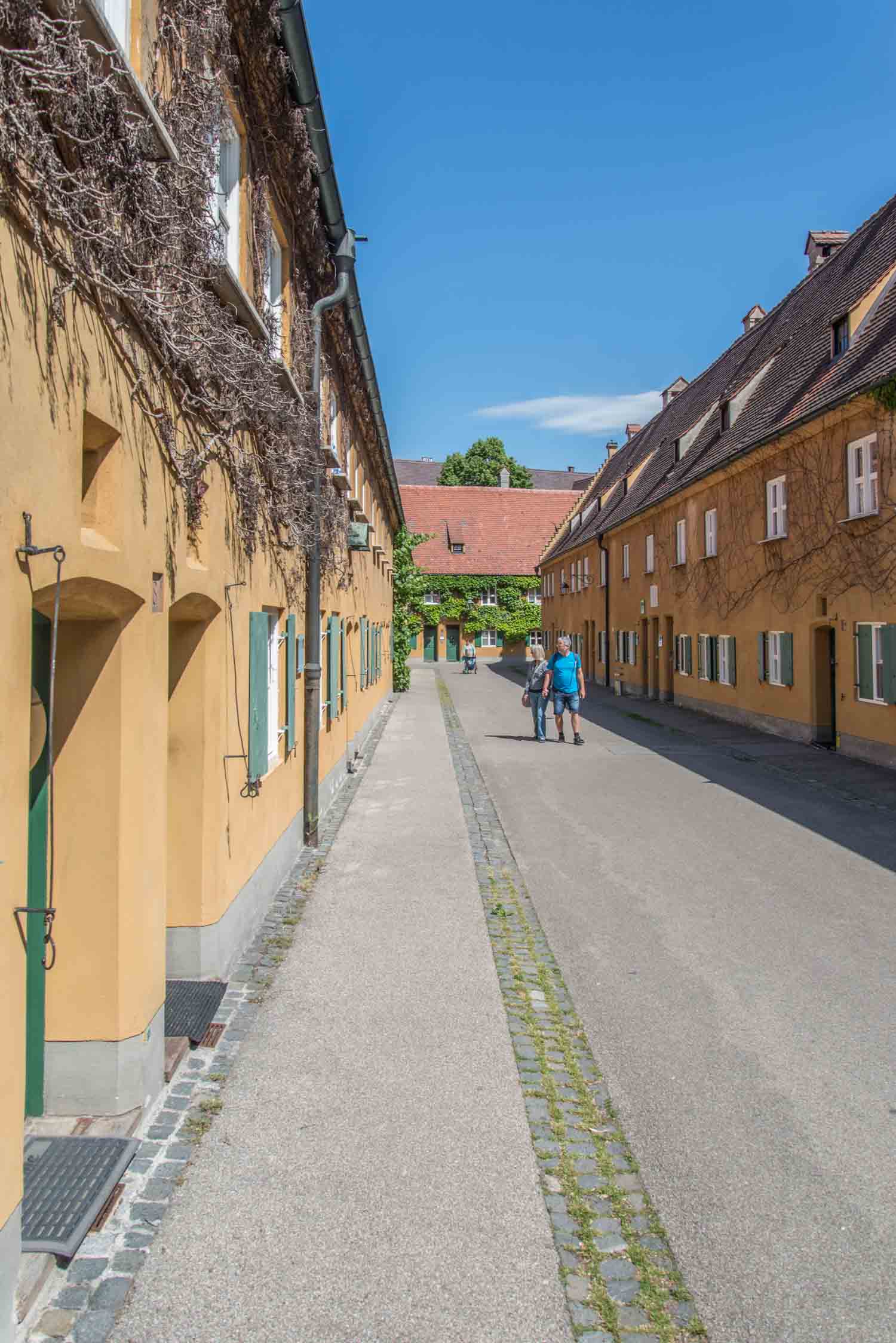
Augsburg overall was a bit of a disappointment. I am beginning to find that my favourite places in Germany are the smaller, more intimate towns and villages. Augsburg just felt to big and spread out. Whether that is due to destruction caused by the Second World War or if it was always this way, I don’t know.
